Analysis and commentary on the Network’s experiences coordinating climate-resilient development.
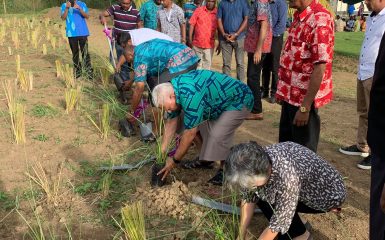
Deep Roots for Resilient Communities: A nature-based solution helping Fiji adapt to climate change
by Christian Ledwell, IISD
Climate change poses major risks for Fiji’s communities, ecosystems and economy. Vetiver grass is playing a key role in the island nation’s climate adaptation plan—and its wide-ranging benefits are already having a positive effect.
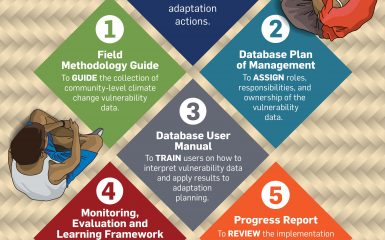
Five New Tools for Coordinating Climate Change Adaptation in Kiribati
Julie Dekens and David Hoffmann, the International Institute for Sustainable Development.
The Government of Kiribati recognizes the risks that climate change poses to the livelihoods of its people. Accordingly, it is putting in place measures to ensure the activities they depend on can withstand more intense and frequent climate hazards. Our team at the NAP Global Network recently helped Kiribati publish several important documents that work […]

Jamaica’s Road to Climate Resilience: Paving the way forward with lessons learned
Daniel Morchain, IISD, and Katherine Blackman and Le-Anne Roper, Climate Change Branch, Ministry of Economic Growth and Job Creation, Government of Jamaica
For decades, Jamaicans have recognized the need to adapt to the impacts of climate change—and acted on it. With several dozen adaptation projects completed or in their implementation stage and an institutional structure set up to ensure coherence and collaboration between government and non-government actors, Jamaica can boast of its track record.
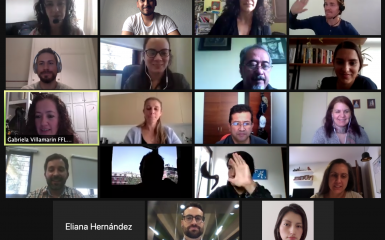
Intercambiando experiencias: avances y desafíos para monitorear y evaluar acciones de adaptación en países de América Latina
Daniel Morchain, IISD, María José Pacha y Gabriela Villamarín, FFLA-CDKN
¿Cómo medir los progresos y fracasos cuando tratamos de adaptarnos al clima cambiante? Empecemos por explorar qué tiene que cambiar, qué tiene que mejorar; por ej. el bienestar humano. Exploramos ideas con 6 gobiernos latinoamericanos.

Engaging the Private Sector in Vietnam’s National Adaptation Plan (NAP) Process
By Huy Nguyen, Climate Change Specialist, Vietnam
Conducting interviews with private enterprises to identify the barriers in private sector participation in the NAP process.
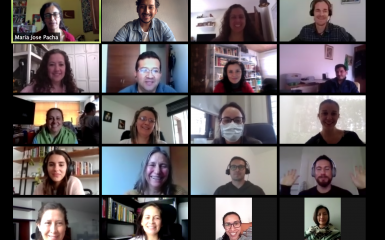
Understanding and Moving Climate Adaptation Forward in Latin America
On September 30, 2020, the first Exchange of Experiences and Dialogue on the Preparation and Implementation of National Adaptation Plans of Latin American countries took place, where 22 representatives from eight Latin American countries participated to learn more from the climate change adaptation experiences of others. Daniel Morchain from IISD and María José Pacha from CDKN report back from the event.
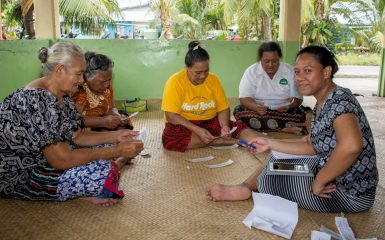
Virtual Peer Learning Event | Monitoring and Evaluation (M&E) for National Adaptation in Pacific Small Island Developing States
A platform for Pacific Small Island Developing States to share lessons on Monitoring and Evaluation (M&E) of national adaptation.
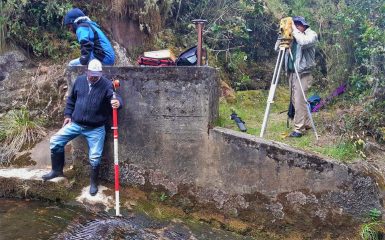
Reliable Water Supply in an Unpredictable Climate
Interview with Daniel Morchain, IISD
An interview with Policy Advisor Daniel Morchain, IISD, on his work in preparing the installation of an early warning system that will help climate-proof Colombia’s water supply system.
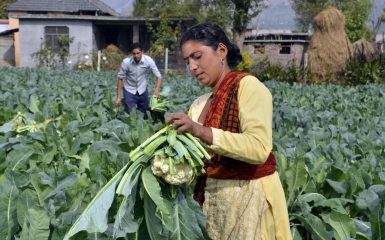
Five Steps to Ensure Your Private Sector Engagement Is Gender Responsive
By Clare Church
As governments engage the private sector in their NAP process, they should take these necessary steps to ensure their efforts are gender responsive.

How COVID-19 Is Reinforcing the Need for Climate Adaptation in Vulnerable Countries
Insights from NAP Global Network Partner Countries
Both the impacts of—and recovery responses to—the COVID-19 pandemic can be linked to a country’s priorities for adapting to climate change. Recognizing this intersection, we reached out to our partner countries to better understand how the COVID-19 pandemic has affected their plans to prepare for and adapt to the impacts of climate change, asking: Has […]

Botswana’s Pragmatic Approach to a Climate-Proof Economy
Sennye Masike PhD, Environmental Economist, CLIMsystems Ltd
Botswana’s National Adaptation Plan (NAP) framework will contribute to the country’s climate change adaptation efforts by guiding the development of the NAP process and give direction to sectoral initiatives.
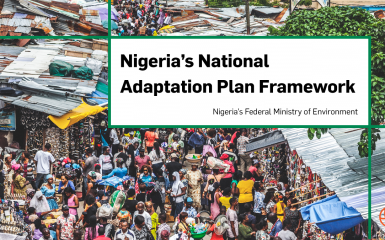
Making Adaptation More Effective in Nigeria: Nigeria’s NAP process
Yerima Tarfa (PhD), Director, Climate Change Department, Federal Ministry of Environment, Abuja and Francis Adesina (PhD), Obafemi Awolowo University, Ile-Ife.
The process of developing Nigeria’s National Adaptation Plan Framework has unveiled the challenges in Nigeria’s adaptation programming, particularly showing which issues need attention for a greater impact in the country.